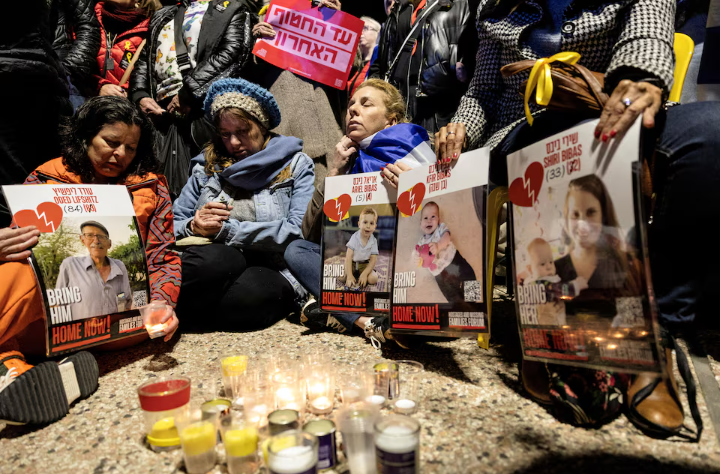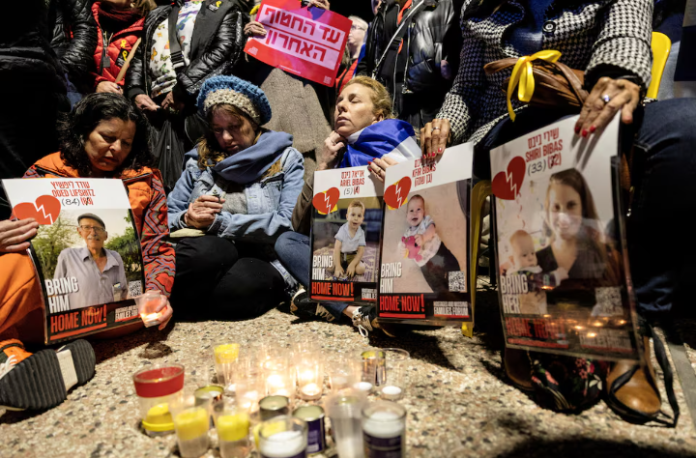In a dramatic turn of events, Hamas has announced an internal investigation after mistakenly handing over the wrong body to Israeli authorities under a ceasefire agreement. The error, involving the remains of Shiri Bibas, has ignited outrage in Israel, with Prime Minister Benjamin Netanyahu vowing to take action.
Ceasefire Agreement Marred by Controversy
As part of the ceasefire deal, Hamas was expected to return the bodies of four Israeli hostages, including Bibas and her two sons, Kfir and Ariel. However, Israeli forensic experts determined that one of the remains was not that of Bibas but an unidentified woman. This revelation has added tension to the fragile ceasefire agreement brokered with U.S. support and mediated by Qatar and Egypt.
Basem Naim, a senior Hamas official, acknowledged the mistake, attributing it to the chaotic conditions caused by Israeli airstrikes, which have left thousands of Palestinians and hostages buried under rubble. He insisted that Hamas had no interest in withholding any bodies and pledged to clarify the situation.
Netanyahu Condemns Hamas, Threatens Response
Reacting to the incident, Netanyahu accused Hamas of breaking the ceasefire agreement, describing the situation as “cruel and evil.” He vowed to ensure that all hostages, both living and deceased, would be returned and that Hamas would face consequences. The Israeli military also issued a statement demanding the return of Bibas’s body, alongside the release of six living hostages scheduled for Saturday.
Hamas, however, maintains that Bibas and her children were killed in an Israeli airstrike back in November. The Israeli military disputes this claim, stating that intelligence and forensic analysis indicate the Bibas children were murdered by their captors. The military’s spokesperson, Daniel Hagari, went further, alleging that the militants killed the boys “with their bare hands.”
Upcoming Hostage Exchange Amid Rising Tensions
Despite the controversy, the hostage exchange is set to continue, with Hamas confirming that six hostages will be released on Saturday in exchange for 602 Palestinian prisoners. Negotiations for a second phase of the ceasefire are also expected to commence in the coming days.
However, tensions have escalated further following a series of explosions targeting empty buses near Tel Aviv. Although no casualties were reported, the attack has revived memories of past suicide bombings in Israel, prompting Netanyahu to order intensified military operations in the occupied West Bank.
Outrage Over Mishandling of Bodies

The mishandling of the hostage remains has deeply shaken many Israelis. Families of the hostages, already dealing with immense grief, expressed their devastation over the botched handover. The Red Cross also criticized the process, stating that the exchange should have been conducted privately and with dignity.
Despite the public anger, calls for continuing the ceasefire persist. The Hostages and Missing Families Forum emphasized the importance of securing the return of the remaining 70 hostages still held in Gaza. “Save them from this nightmare,” the group urged in a statement.
While the Israeli government has not signaled a complete withdrawal from negotiations, reports suggest that officials may seek to extend the 42-day ceasefire rather than immediately enter discussions about more complex issues, such as a long-term truce or Hamas’s future in Gaza.
As diplomatic efforts continue, all eyes remain on Saturday’s hostage exchange and how Israel will respond to Hamas’s failure to deliver Bibas’s remains.



